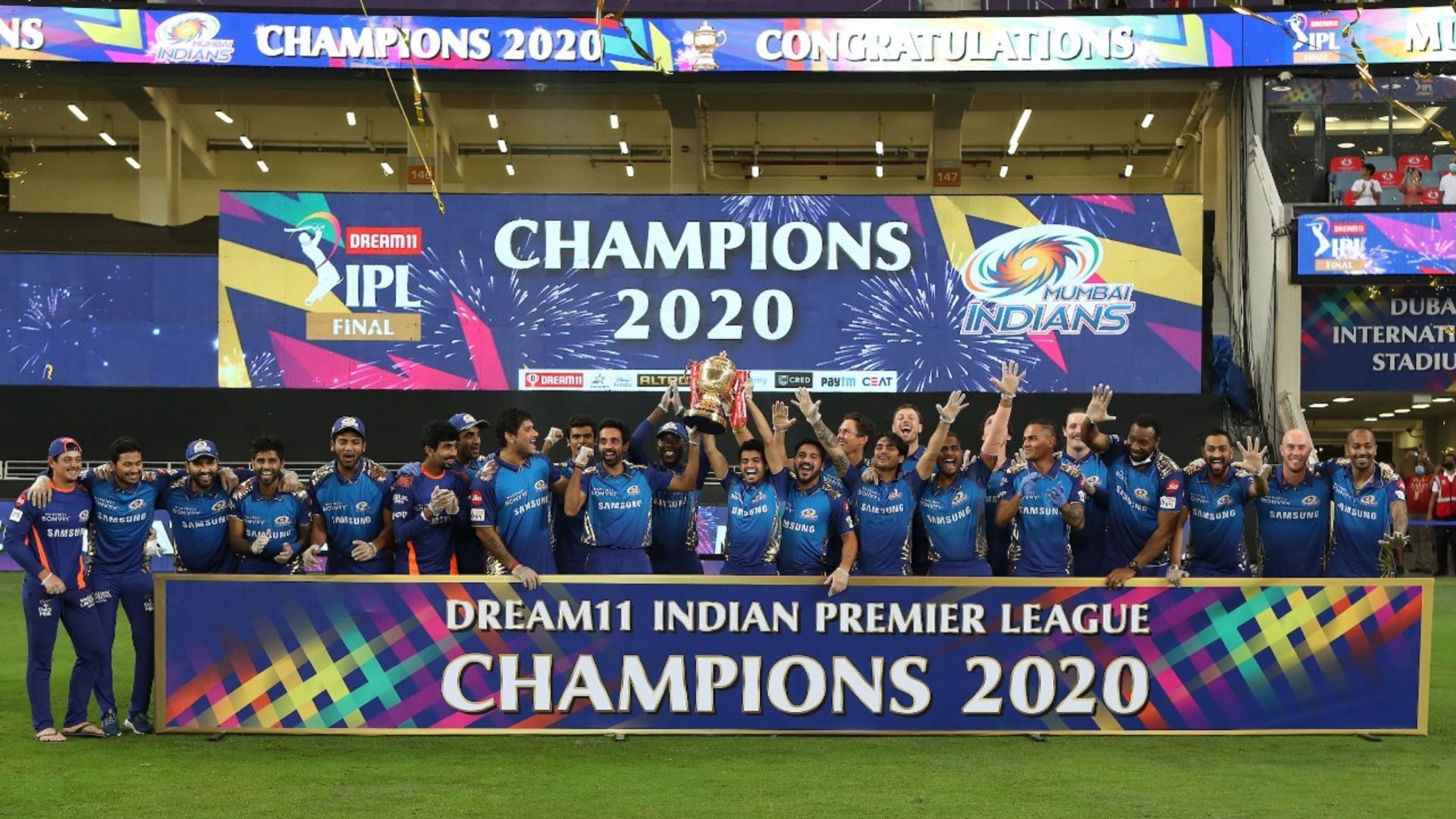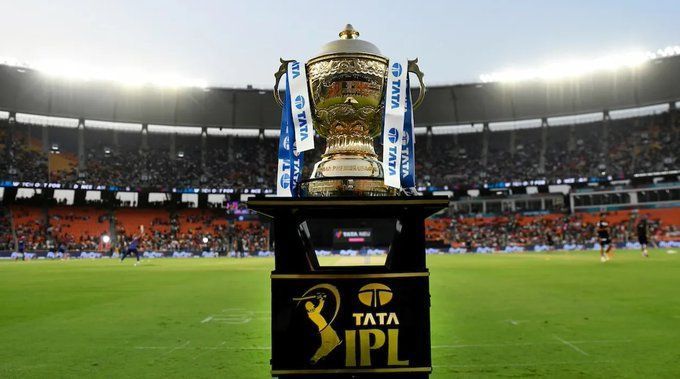
Cricket during COVID-19: Conducting full-fledged IPL in a different country in the middle of a pandemic a new high in sports operations
The Indian Premier League (IPL) has overcome several challenges over its relatively short 14-year lifespan to assert its dominance as a behemoth among sporting events on a global scale. The competition has achieved unprecedented heights, with the scarier fact being that this might just be the start of a paradigm shift.
The aforementioned challenges were much to the competition’s chagrin, almost right up front. The IPL has dealt with issues ranging from spot-fixing, match-fixing, sensitive topics regarding the participation of Pakistani players, and disciplinary issues that showcased the tournament in a bad light. But considering all of these woes and the ones that constitute the rest of the list, the IPL’s greatest challenge came during the onset of COVID-19.
The pandemic brought the entire world to a standstill and the world of sports, including cricket, was by no means an exception. As the cricketing hierarchy pondered over the gripping uncertainty, the IPL was also forced to take a backseat.
However, after being under immense pressure from the likes of sponsors and stakeholders, the IPL were not in a position to simply call off the tournament. Hence, a decision to postpone the event was made, which showcased a tinge of optimism.
If you take a closer look at the major sporting events around the world, the COVID-19 had major ramifications. Ligue 1, France’s premier football league, was entirely called off and a similar case was observed in the Netherlands as well. The NBA season, which was halted midway, resumed under strict bio-bubble conditions in Florida.
Unfortunately, the IPL did not have the means to carry out either one of those scenarios. Calling off the tournament was definitely not an option back then, while a bio-bubble was a highly risky option considering the severity of the pandemic in India. India reported cases well into the four-figure mark during the March-May window, which was the slated time for the tournament to be conducted.
The hopes of conducting the tournament in India looked grim as the cases did not recede, giving the nation its first wave of infection. Initially, the prospect of playing behind closed doors was considered, but with the daily tally of the number of cases hitting the five-figure mark in June 2020 with no signs of stopping, they had to seal that option completely.
At this point in time, the organizers mulled over the prospect of hosting the IPL abroad, since conducting it on home soil would not only be feasible but highly questionable as well.
Luckily, this was not the first time that the IPL came across a scheduling and hosting crisis. The tournament was forced to seek an abode in South Africa as early as their second season of implementation. With India largely involved in the assembly elections back in 2009, the IPL was successfully conducted in the African nation without any hiccups.
Moreover, the competition is also not alien to last-minute planning. In one such instance, during the 2016 edition of the tournament, a few set of matches had to be moved away from Maharashtra. The drought in the state prompted several environmentalists and the government to question the large quantity of water being used to maintain the grounds. The organizers proceeded to move the matches away from the likes of The Wankhede and conducted them in Vizag instead.
What are the challenges BCCI had to face while conducting the IPL overseas?
With the seventh edition of the T20 World Cup being canceled and moved out of Australia, the Board of Control for Cricket in India (BCCI) were able to slot in the cash-rich league in the September-November window.
Following the Emirates Cricket Board’s (ECB) approval, the next hurdle in sight was the execution of the organizers. Now, conducting a tournament, the scale and stature of IPL’s stature is difficult as it is without the additional curlers.
The revenue from gate money was sacrificed considering the big picture in mind, which was always the media rights share. There is almost a ten-fold difference between the two, if not more. Despite COVID-19 not being as prevalent in the UAE when compared to India, the tournament was held behind closed doors.
Other sacrifices had to be made as well, with the organizers bearing almost three times the cost of hosting the tournament away from India. Chartered planes had to be organizers to assemble the players in time for the pre-tournament quarantine, and hotels in the Middle East were also charging way more fare.
The tournament faced an early hiccup as a slew of members of the Chennai Super Kings (CSK) camp returned positive test results during their training camp. However, not a single COVID-19 case emerged over the course of the tournament, all because of an air-tight bio secure bubble in place.
The BCCI hired British technology firm Restrata, who provided a biosecure environment for players, staff and all of the other personnel involved in staging the event. The company came into the spotlight after the ECB employed their services to resuscitate cricket.
The firm setup the bio-bubble for the first-ever cricket series after the enforced break due to COVID-19. The bilateral series between England and West Indies was conducted successfully, showcasing that cricket has the scope to thrive even in these unprecedentedly peril-driven times.
The BCCI took a cue from their English counterparts and the decision to let the professionals handle the bio-bubble served well in the long run and paid dividends.
Why were the BCCI forced to turn back to the UAE in 2021?
The tremendous success of the 2020 edition of the tournament, not only in terms of cricket, but record viewership led to broader sponsorship deals and all in all set a new benchmark for sporting events in general. When the next edition of the IPL was unfurled, the organizers opted to conduct the tournament in India itself, despite COVID-19 arguably being worse than ever.
With up to over 100,000 cases being reported on a daily basis across the country, it was a huge decision taken by the BCCI. The board felt that they were prepared to conduct the tournament following their resounding success the year before.
A revamped and slightly relaxed SOP (Standard Operating Procedure) guidelines, the caravan-style itinerary and the use of FOB (GPS devices) did not quite click together, leading to a cessation of epic proportions. Multiple bio-bubbles set in place were breached and in hindsight, it is hard to see how that was not inevitable.
Following multiple cases, including a few severe ones like Mike Hussey, the tournament was suspended indefinitely.
Attempts to revive the tournament were made once India got out of the second wave of COVID-19. However, the BCCI chose to conduct the second leg of the tournament in the UAE, apparently due to ‘monsoon’.
COVID-19 still made its presence in India by the time the 2022 edition came knocking. Countries like South Africa and Sri Lanka expressed their desire to host the event, but the BCCI eventually decided to stage the tournament across three venues in Maharashtra itself.
What does the future hold for the IPL in overseas nations following its successful implementation?
Some of the factors that are considered when the question of conducting the league overseas arises is the time zone as well as the weather. Viewership is considered paramount, with the bulk of revenue coming from broadcast deals and other sources associated with it.
The IPL held onto the March-May window on a consistent basis to rope in and draw in the youth demographic in particular, keeping in line with their schooling schedule. This has played a key factor over the years in their impeccable viewership statistics that have had the broadcasters satisfied.
The ECB has expressed its desire to host IPL matches in the future as well, keeping in mind the success it has attained in the UAE on multiple occasions. Newly appointed ECB chairman Richard Thompson told The Telegraph:
"The NBA and NFL come here, so why can't we host the IPL? The IPL has grown its window by another three weeks and I don't think it cannibalises other competitions because [many England] players are playing in it anyway.
The organizers have dipped their toes into the overseas market by considering to stage the upcoming mini-auction in Istanbul of all places, with other Indian cities in contention as well.
A senior BCCI official even confirmed the organizers’ interest to conduct the event overseas due to the international interest it has attained over the years. He recently told Inside Sport:
“We are positive about conducting it outside India. IPL is a global brand now and it is only sensible to spread the wing and spread awareness. Istambul is a great holiday destination and has all the amenities to conduct the auction there.”
He added:
“Most of the franchises are on board with it. The idea is to take it to different shores like the NBA does to raise awareness and build new fanbases. But we are still in talks and a decision will be made in the next GC meeting.”
Has the BCCI been spot on with the execution of the tournament overseas so far and do you see it happening again anytime soon? Let us know what you think.

